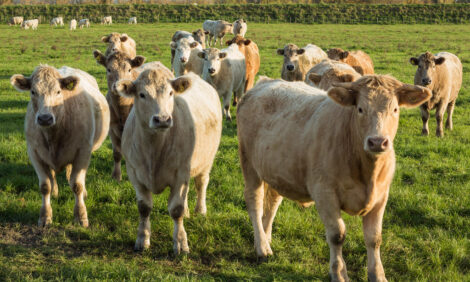



Why milk is no longer all white for farmers
UK - The pastures are as lush as ever, the cows are contentedly chewing the cud - but life for dairy farmers in Manchester's rural hinterland is far from green and pleasant.There are about 3,000 dairy farms in Manchester's rural areas. Damp, mild and fertile, the grasslands of Cheshire and Lancashire are ideal for milk production. As many as 10,000 people are employed in the region's dairy sector. But livelihoods - and the future of locally-produced milk - are under threat. Thanks to a market dominated by just three main milk processors, and more pressure to cut costs from the big supermarkets, farm gate milk prices have plunged.
Today a typical dairy farmer is paid about 18p a litre for milk which costs around 23p to produce. The total cost to the industry is more than £270m a year.
But for individual local farms, the impact is even more serious. Faced with losing 5p on every litre they sell, it's little wonder many dairy farmers are going out of business.
Fewer local farms mean more imported milk, and more land transferred from traditional pastures and open fields into bleak prairies growing crops for conversion to biofuels.
William Slinger has a herd of 100 Friesian Holsteins at Pendleton near Clitheroe. He said: "The milk prices we're getting paid mean dairy farming really isn't sustainable."
With a litre of milk now selling in Sainsbury's for 49p - more than twice the farm gate price - William believes the big retailers could do more to help by cutting their own multi-billion pound profits.
He said: "The supermarkets could do more to help dairy farming. So could the three big milk processors, Arla, Dairy Crest and Robert Wiseman. So far we've increased production - we're up from 75 cows to 100 - in an effort to generate the income needed to our costs, but obviously that isn't a sustainable tactic either."
Fortunately the Pendleton herd is part of the Bowland Milk scheme,selling milk direct to consumers and retailers, and by-passing the big milk processors.
Source: Manchester Evening News


